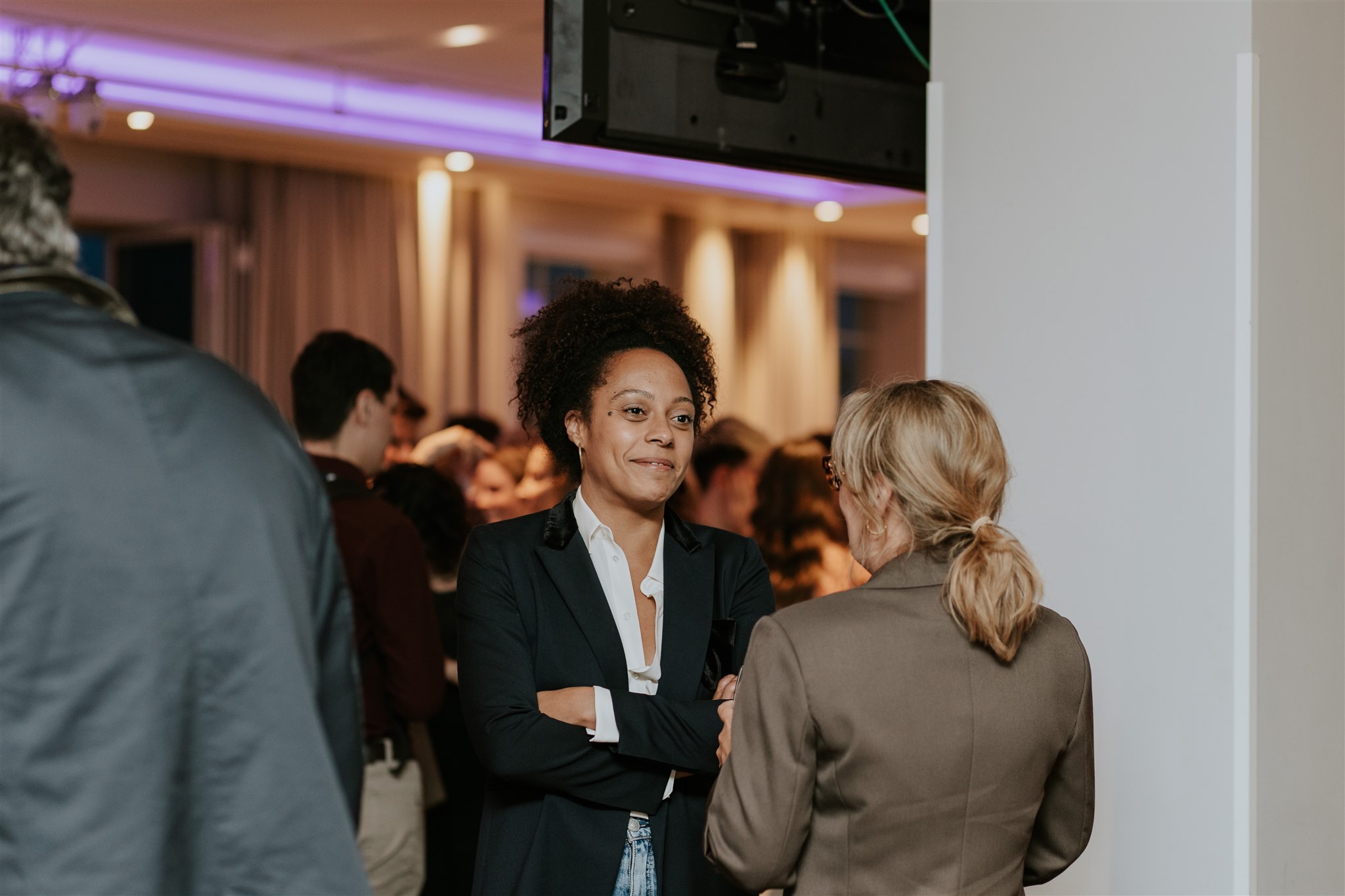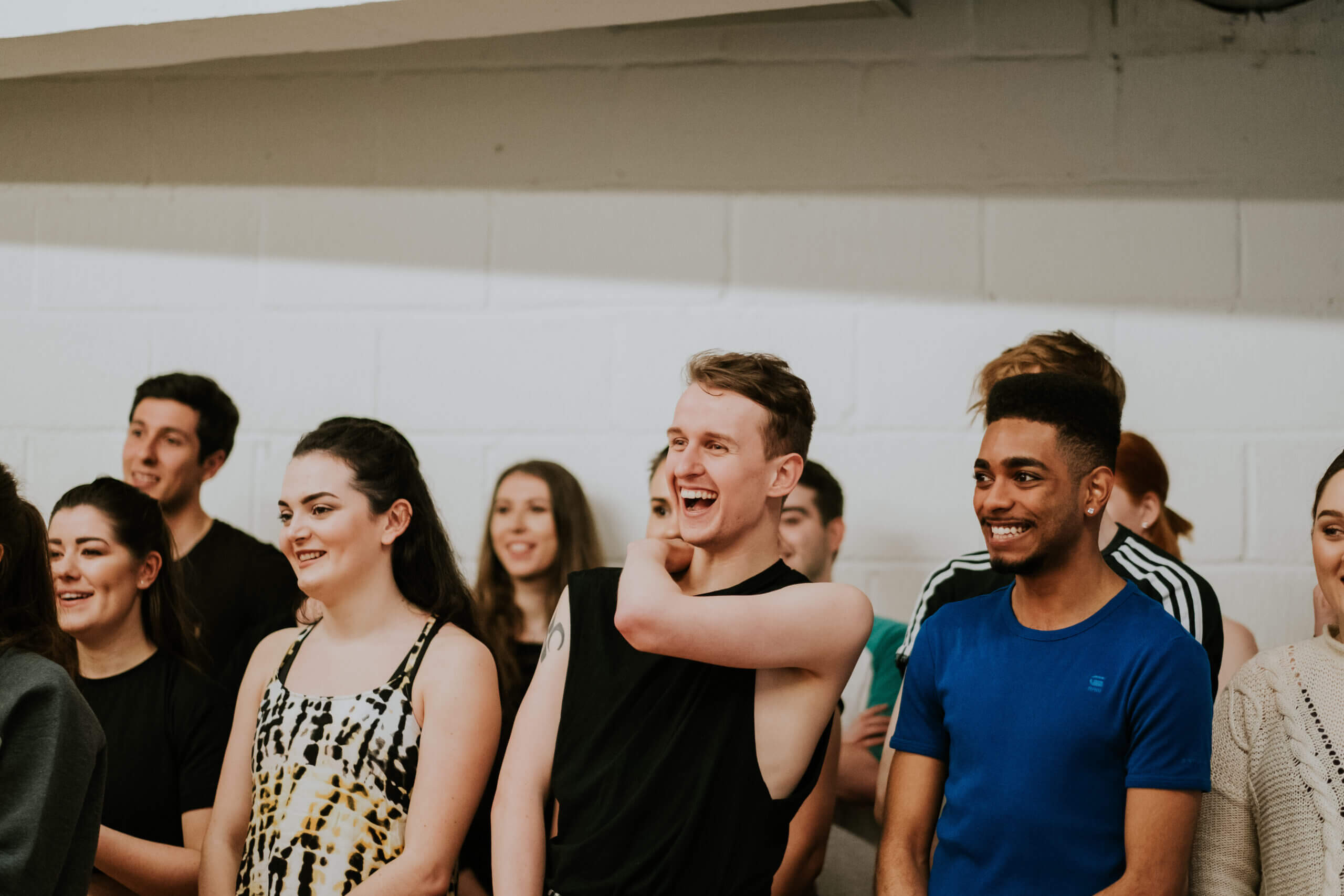What you need to know about mastering your next accent challenge…
At our recent Liverpool Open House, accent and voice coach Nic Redman gave members some great one to one tips! We spoke to her after the sessions to get her tips on accent and voice work, so that you too can work towards mastering another accent.
You have to find comfort in the sound, and I think if you are attacking it from an incredibly serious and technical point of view, you’re going to stress yourself out. Always find the play in it, keep it physical – in the whole body – and keep it light-hearted.
Where do you encourage people to start with a new accent?
The first thing you have to do is research the people of the area, of the accent you’re looking for. That will give you a lot of clues – look at the people who are there, in terms of their general attitude to life, what they’re known for being, personality-wise, and also the geography of the area. Is it a city? Is it rolling hills and countryside? Is it going to be a lovely lilting up and down Welsh accent, or a really sort of twangy Mancunian city accent? Just to give you a feel for it.
The general place I start with people is dealing with the physicality of it. That can be the entire body as well as the physicality of the setting. So, remember that it’s not just about changing the specifics of the sounds you’re making, it’s about taking on the complete change in physicality that the accent needs. So, my accent might have a really tight-held jaw for example, whereas another accent might have a really loose jaw. Finding those physical anchoring points will short-cut some of the sound changes for you. So, if you know the accent is focused further back in the mouth with a lot of tongue route tension, for example, they might not be able to get the tongue as far forward as possible – there might be an ‘f’ substitute for a ‘th’ for example – understand what’s going on physically so you can short-cut some of the sound changes. As well as that, think about the rhythm and the energy of the accent. So, RP for example is lilting, has a feeling of gliding along with the sound very much travelling forward out of the mouth. The Newcastle accent, on the other hand, is much more back and forth, and can feel a little bit more percussive – if you can get that as well, it can help.
I get a lot of people phoning me saying “I have to sound like I’m from Moscow for tomorrow for a self-tape!” It’s about:
- Researching the area and its people
- Listening to all the samples you can
- Mimicking what you hear and feeling how different it feels to your own sound. See if you can place it – what’s the tongue doing? What’s the jaw doing?
How important is ‘play’ for accent work?
It’s hugely important – my way in for all clients is playing, mimicking, imitating and then you sneak in the little technical changes. Because not everyone needs or wants to know about the phonetic symbol for such-and-such. For example, I’m Northern Irish. So, the first thing I say to people to do when they’re doing Northern Irish is, “I’m going to talk at you, and I want you to take the complete mickey out of what you hear, just with ‘nyah nyah nyah nyah nyah’!” I want to hear them mimic the tone of what they can hear in my accent, then they find where it sits in the mouth. Notice if their tongue is sitting higher, or their jaw feels more tense, etc.
I think play is incredibly useful as a starting point to access a new accent and acquire a new sound, and also to find consistency in it. You have to find comfort in the sound, and I think if you are attacking it from an incredibly serious and technical point of view, you’re going to stress yourself out. Always find the play in it, keep it physical – in the whole body – and keep it light-hearted.
Do you think there are certain key phrases or words that can help quickly anchor you into an accent?
Most people I know have little trigger phrases to get into an accent – so for Northern Irish it can be changing the word “now”. So, it’s the classic ‘how now, brown cow’ phrase that works really well. There are certain vowels that are markers for change in a lot of accents, so for example the north-south divide on a very basic level is categorised by the strut vowel, so the “u” sound in the word strut. That’s very general, but if someone’s going from north to south or south to north, that’s one of the sounds that’s going to stand out. So, it’s finding the stereotyped sounds! If you’re outside in the audition room, just whisper a phrase to yourself. It’s not necessarily a short cut to getting the accent perfect but it’s a good reminder if you’re going from one accent to another in a very quick situation, like an audition.
Do you think there are certain accents are just harder?
On a very basic level, I think it comes down to the fact that the ones we hear the most are the easiest. I think the ones that are hardest are actually the accents that are similar – going to a sound shares similar qualities to your own. It is easy to get tipped back into your own accent very easily.
What do you think of the trend towards more regional accents in media – do you think the types of accents you ‘need’ have changed as a result?
It’s interesting for the voice over industry, especially in commercials and corporate work, because in general they’ll always find a native. But it’s useful if you’re able to do accents and have access to characters if you’re doing voice overs in gaming or animation, things like that. With actors, I know there is a trend for more regionality, but unfortunately there is still not enough. So, nine times out of ten the request is: “My drama teacher wants me to sound less like I’m from…” Or: “I never get to use my Scouse accent.” And then it’s about giving someone access to a different sound. On the whole I don’t believe in accent softening or accent reduction, because psychologically it’s not where I am as a very Northern Irish sounding person! For me it’s about saying, “Yeah, you’ve got a beautiful Scouse accent! Let’s make sure you’ve got total clarity of thought and communication, and confidence, in that native sound. But let’s also give you access to RP, and a general Mancunian sound…maybe something Southern – something for Holby City!”
We get a lot of questions about maintaining a good RP accent – any tips for getting this right?
The RP thing is generally frustrating at the moment because every casting director’s opinion of what “RP” is, is different. So, some people think RP is that very heightened feeling, very Oscar Wilde. And some people think RP is just a natural, very standard British sound, very neutral. So, I think the first thing is it’s ok to ask the question: what kind of RP do you want? Do you want the heightened RP? More neutral RP? The other thing is go back to the setting. A good way into the setting of RP, in any form, is talking like you have a hot potato in your mouth at all times – lots of space in there. So, first ask the question about what sort of RP is needed to be as clear as you can, then immerse yourself in some appropriate models for you. That may be Prince William, or it might be Emma Watson.
Actors often want or need short cuts, particularly for last minute castings, but unfortunately with accents there aren’t always short cuts available. You might have a natural flair – brilliant, go with it, make yourself as cast-able as you can. If accents don’t come easily to you then make sure you are working on a few of the most asked for accents in the background so that you have them ready. Or decide its not your bag and work on owning your own sound! You can have a career as an actor without doing any accents at all. Just remember that you need to be comfortable with the sound you’re making first and foremost, whether its your accent or someone else’s. Your job is to be a good actor! Don’t let a dodgy accent get in the way of that.
About Nic Redman
With an MA Voice Studies from Royal Central School of Speech and Drama, and a varied performance career spanning 10 years, accent and vocal coach Nic’s work covers the fundamentals of voice training from breath through to text as well as accent coaching and character voicing for gaming and animation. She has taught at LIPA, RADA, Arts Ed, East 15 and ICAT. Her accent coaching credits encompass work for CBBC, Hatrick Productions, Radio 4 Comedy, Theatre 503 and The Actors’ Guild. Nic also runs a thriving 1-2-1 voice practice helping individuals with tailored voice advice and accent training.
As a voice actor Nic works internationally voicing commercial, corporate and character scripts with a client list including Tesco, NSPCC and TK Maxx. She also co-runs @VOSocialNorth, the first voiceover industry specific social in the North.
Check out her website and her Twitter for more information on upcoming workshops, or book yourself in for a one-to-one coaching session.












